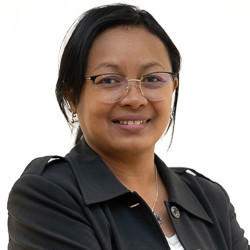Chad
The Context
Spread across 1,284,000 km2 of the Sahel between Niger and Sudan, Chad is a landlocked country whose northern half is desert. Three decades of internal conflict and political instability have compounded the harm caused to the rural population by frequent droughts in the 1970s and 1980s.
The population is very young - more than half of citizens are under 15 and just 4 per cent are aged 60 or older.-People are concentrated in the south, which is more suitable for farming.
Since 2015 falling oil prices have undermined Chad’s economy. Agriculture generates 40 per cent of GDP and 80 per cent of exports, whilst employing 80 per cent of the workforce.
Between 2003 and 2011, the national poverty rate fell from 55 per cent to 47 per cent.
In the central areas where IFAD-funded operations are ongoing, poor rural people have to overcome poor infrastructure, low rainfall and climatic variations. Plagues of pests combine with problems of soil erosion and desertification, threatening harvests and livestock.
Farmers lack access to the services, knowledge and technology they need to improve productivity. Inadequate access to rural financial services also prevents poor farmers from developing alternative income opportunities or improving productivity.
Increasing pressure on natural resources in marginal areas is damaging fragile eco-systems and often causes conflict between settled farming communities and nomadic herders, increasing threats to development and livelihoods. These drive farming households to migrate to areas with greater potential, recreating the same dynamic elsewhere.
The Strategy
In Chad, IFAD loans help provide poor rural women and men with the resources to increase their incomes and improve their food security.
Our country strategic opportunities programme (COSOP) for Chad has two strategic objectives:
- improving access to and sustainable management of water resources. We focus on better management of natural resources, especially water, because it is key to the livelihoods of many in Chad; and
- improving access to input and produce markets in those value chains where rural poor people have a comparative advantage. Chad’s rural producers are generally engaged in subsistence farming and capture a very small part of value generated by agricultural production, even in areas that are not isolated.
Country Facts
Chad is one of the world’s most landlocked countries and one of the largest in Africa.
Agriculture employs 80 per cent of the country’s active population.
Between 2003 and 2011, Chad’s national poverty rate fell from 55% to 47%.
Since 1992, IFAD has supported 8 programmes and projects in Chad for a total of US$163.5 million, directly benefiting more than 148,000 rural households.
